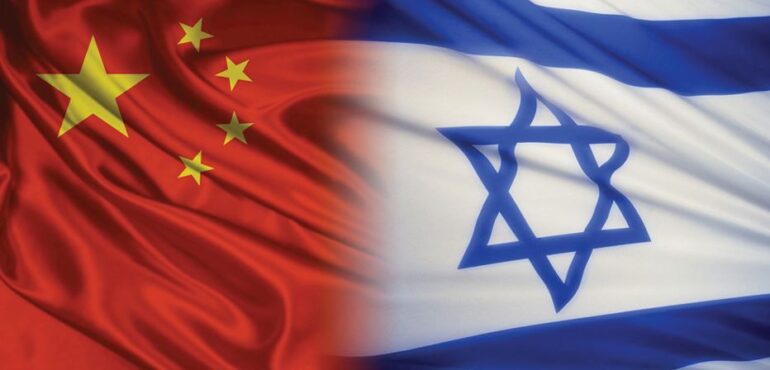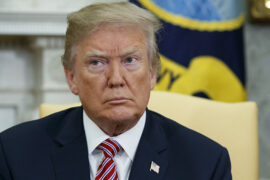In his book “The Grand Strategy of the Roman Empire,” Edward Luttwak describes the strategy of the early Roman Empire, from Augustus to Nero, as a network of client states arrayed as a defense perimeter around the imperial center.
Rather than engaging each threat that arose, the empire provided economic and cultural benefits to its smaller neighbors, and in return, these client states protected the empire by defending their own borders (facing away from Rome of course).
Jewish history is deeply familiar with this strategy, and its later breakdown. Under the Herodian dynasty, post-Hasmonean Judea fell under Roman tutelage as a direct response to the Parthian threat against Rome. Rome brought their “modern” culture and economic system to Judea, and in turn, Judea formed a peaceful buffer between Rome and Parthia.
But as the Roman leadership fell into crisis under Nero, and revolutionary movements in Judea (and around the empire) gained steam, the empire was forced to take more severe measures, both to quell rebellions and to defend its borders.
In short, the empire shifted from client networks to a frontier defense, with stronger garrisons along the fronts, especially in rebellious provinces like Judea.
While Roman strategy was insufficient to prevent the empire’s downfall, the spirit of Roman grand strategy lives on in its cultural and spiritual inheritors. Western civilization, and the United States in particular, which embodies the identity of Edom today as Rome did in its era, has not forgotten the power of willing client states.
In recent weeks, as part of President Donald Trump’s ongoing efforts to maintain Washington’s hegemony in the face of challenges from an ascendant China, the US has advised all of its allies (or clients) to sever ties with Beijing in any field with potential security risks. This includes a wide array of foreign relations, from academic exchanges to foreign investments.
Secretary of State Mike Pompeo even broke quarantine two weeks ago by making a special trip to the State of Israel to warn Jerusalem’s new government against accepting a Hong Kong-based company’s bid for a new Israeli desalination plant (which is expected to be the largest in the world when complete). It is unclear whether Trump’s conflation of Hong Kong with mainland China is intentional or just another foreign policy gaffe.
Washington’s combative stance towards China is especially significant during the COVID-19 pandemic. While repeatedly lambasting China for allegedly mishandling and intentionally spreading the virus, the Trump administration has failed to contain the virus internally and allowed for widespread economic distress. While China has repeatedly extended a hand to cooperate with the global community and help other nations defeat this pandemic, the US remains intransigent.
But Washington’s antagonism towards China runs deeper than fears over the virus. The growth of the Chinese economy in recent years has undercut US outsourcing enterprises that have relied on paying Chinese workers low wages, reducing the incentives for American capitalists to manufacture in China.
In response, Trump freely antagonizes a Chinese government that no longer seems essential to US business interests.
Just as Rome under Trajan began an offensive against Parthia, after decades of minor conflicts in which neither side emerged fully victorious, it appears that Trump, tired of tit-for-tat trade wars, is hoping to deal a more decisive blow to the Chinese economy under the political cover of the Corona crisis. And just as Trajan’s war was dependent on a loyal submissive Judean front, Trump’s China policy depends on the complete isolation of Beijing from all of Washington’s allies.
Thankfully, the Trump administration is not the only player in the game that can learn from history. If we look to the Roman example, it quickly becomes clear that US support for the State of Israel only reaches as far as Washington’s imperialist interests are served.
Basing Israeli foreign policy on American great-power struggles would be a grave mistake. It is far more expedient to clarify our own interests, regionally and globally, and then align ourselves relative to China, the US, and any other nation accordingly.
As the Leḥi (Fighters for the Freedom of Israel) learned during their anti-British war to free Palestinian in the 1940s, playing the interests of imperial powers against one another is generally the best way to advance Israel’s liberation and interests. The revolutionaries of Leḥi had taken their lessons from, among others, the widespread Jewish revolts in the Kitos War, who levied general distrust towards Rome across the Mediterranean to decimate Roman garrisons in Egypt, Cyprus, and Libya following the failure of the Judean Great Revolt and the destruction of Jerusalem.
Only by identifying and pursuing Hebrew interests, regardless of their implications for our supposed “friends” can we truly liberate ourselves from foreign rule and advance our people’s liberation to the next stage.





